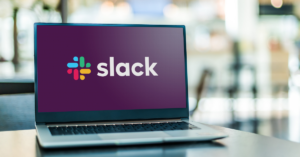Startups are high pressured environments at the best of times. They often have big ambitions that typically rest on the shoulders of a small team. So it’s probably no surprise that the average tenure at a fast-growing startup is just two years, several years less than the market average.
This context has made startups acutely vulnerable to the effects of the pandemic, which forced many of us to rapidly adjust our ways of working. A recent survey by Oracle found that for 70% of employees, last year was the most stressful of their working lives, and quite frankly, this has taken its toll on energy levels.
Burnout has become such a problem, that the World Health Organisation (WHO) classified it as a globally recognised occupational syndrome in 2020 and describes the following symptoms:
- Feelings of energy depletion or exhaustion;
- Increased mental distance from one’s job;
- Feelings of negativism or cynicism related to one’s job; and
- A sense of ineffectiveness and lack of accomplishment.
When we’re burned out, it reduces our bandwidth to perform, leaving colleagues to absorb the slack. This affects not just a startups ability to gather momentum but can also lead to higher staff turnover.
In this article, we discuss five ways that startups can reduce burnout.
1. Work smarter, not harder
‘You get applauded when working silly hours’. If this quote from a Glassdoor review sounds familiar, your organisation may be placing too much value on the amount of ‘voluntary’ overtime worked.
Startups are particularly at risk. And although extra hours worked can show dedication to the cause, if employees are becoming burned out or seeing their wellbeing suffer, then those extra hours won’t contribute much in the way of additional productivity.
It’s important that leaders learn when to step on the gas and when to apply the brakes. Employees need time to recover, so that they’re ready for the next challenge.
2. Empower employees to look after their own health and wellbeing
According to PwC, 61% of UK CEO’s are concerned about the declining wellbeing of their people. Evidence shows that a healthy workforce experiences lower absenteeism and higher levels of resilience, engagement, and productivity. Good levels of wellbeing are therefore a powerful defence against burnout.
By empowering your people to prioritise their own health and wellbeing, employees will be better able to recognise and react to early signs of burnout and stress before it becomes a problem. As the saying goes, ‘if you give a man a fish, he is hungry again in an hour. If you teach him to catch a fish, you do him a good turn.’
Some ways to achieve this include reminding staff of any wellbeing benefits and support you offer. Regularly sharing insight with your people about health and wellbeing or even sponsoring mental health training can arm your employees with the tools they need to be proactive.
Finally, leaders need to look after their own wellbeing. Research suggests that startup founders are 50% more likely to report having a mental health condition. In a recent interview with the Guardian, Tom Blomfield, Founder of FinTech unicorn Monzo, shared that he experienced anxiety that kept him awake at night, and recommends that we are more open with others about our own mental health.
3. Create a culture that can switch-off
At many startups, breaks just aren’t part of the culture, after all how can you revolutionise the world when you’re on a break! However, research suggests that five-minute ‘microbreaks’ are shown to help employees bounce back from fatigue and therefore be more productive.
So, how can leaders encourage employees to switch-off? The most effective way to change culture, is to lead by example. If leaders show that taking breaks are acceptable, then this will cascade across the organisation. But sometimes breaks just aren’t enough, and employees need to recharge for longer. Holiday take-up should be encouraged throughout the year, particularly after periods of high workload.
In the fight against burnout, it was recently announced that London-based FinCapp, a stockbroker, will offer its employees ‘unlimited’ holidays. However, whilst headline-grabbing, such schemes can cause anxiety and that’s why the firm also asks employees to take at least four weeks’ holiday a year and two or three days a quarter.
4. Give notice of schedule changes and use forward rotations
If you’re running a startup that relies on shift-work, then your employees may be particularly at risk of burnout. Research by the Retail Trust earlier this year found that employees working in retail, distribution and warehouses were most likely to score low for mental health – with the majority saying that they rarely, or never have ‘energy to spare’.
And although labour shortages and coronavirus isolation have made planning staff rotas challenging over the past two years, there are several tips that can help staff feel well rested:
- Give your team as much notice as possible when it comes to announcing the schedule and making changes. This helps them to plan their social life and rest time around work in a way that’s manageable.
- If a staff member is consistently picking-up extra shifts, check-in with them to assess whether they are getting sufficient rest.
- Where there are morning, evening and night shifts, consider forward rotation. Forward rotation minimises disruption to our body clock. This type of shift system first moves from a morning shift to an evening shift and then to a night shift. Conversely, backwards rotation is shown to be detrimental to mental health.
5. What you measure tends to improve
Even though society is increasingly open about health and wellbeing issues, people are still less likely to speak up about it, making it difficult for leaders to truly understand the health of their employees.
That’s why our final tip is to put in place a process that regularly captures anonymous employee feedback. Real-time feedback helps to develop a rich vein of insight that far outweighs a ‘snapshot in time’ approach that may already be out of date by the time it’s discussed and analysed.
Key takeaways
Startups are naturally ambitious and that also means the people who work in them can be particularly prone to burnout, which can lead to a higher incidence of errors, absenteeism, and ultimately staff turnover.
It is possible to build a fast-growing business while also putting in place strategies and mechanisms to help better support employees. Startup leaders that manage the wellbeing of their teams in a sustainable way will reap the rewards of a more energised workforce, as well as a healthier and more resilient business.










